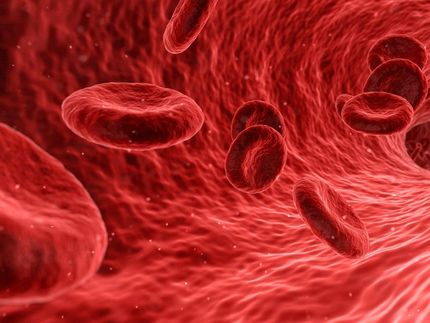A leap forward for red blood cell formation
Researchers have identified 75 genetic regions that influence red blood cell formation
New research is revealing how red blood cells are made and how the body regulates the amount of haemoglobin that is packaged in red blood cells at any time. Genomic analysis techniques have doubled the number of genetic regions that are likely to be involved in red blood cell formation and subsequent study using fruit flies has given insights into what these regions do.
The researchers used genome-wide association studies to identify genetic regions that appeared to influence the formation of red blood cells and their haemoglobin content.
"We studied the genetic influences behind six different physical parameters of red blood cells that reflect the volume and number of red blood cells and the levels of haemoglobin," says Dr John Chambers, lead author from Imperial College, London. "Our initial genetic association study looked into the genomes of 135,367 people and identified 75 genetic regions that directly influence these different traits of red blood cells. More than half – 43 – of these discoveries are new in people."
The team then closely examined using computational biology approaches the 75 genetic regions and the more than 3,000 genes responsible for protein production lie close to these regions. They prioritised 121 'candidate' genes or genes that are likely to regulate a trait in red blood cells from this list and investigated their function using information on model systems like from public databases as well as newly-generated data for fruit fly.
"Our work shows how model systems like fruit fly and mice can be used to provide insights into human genetics," says Professor Willem Ouwehand, lead author from the University of Cambridge and NHS Blood and Transplant. "We searched through a Mouse Genome database and found that 29 of our 121 candidate genes are linked to red blood cell formation in mice.
"These previous studies revealed that - when the function of these genes was switched off- the mice frequently developed reduced numbers of red blood cells, and anaemia. These observations made in mice make it highly likely that the remaining candidate genes, about which there is no knowledge yet, are also important regulators of red blood cell formation in people."
To investigate further, the team then reduced or 'silenced' the activity of the candidate genes in fruit flies. Although fruit flies do not have red blood cells, they share some of the gene functions leading to the formation of blood elements. These studies confirmed that sets of genes involved in controlling human red blood cell traits in people were also important for the formation of blood cells in fly.
"These results support the view that genetic association studies identify sets of genes that are conserved in evolution across a wide range of species," says Dr Nicole Soranzo, lead author from the Wellcome Trust Sanger Institute. "This is exciting because it means that we can obtain extensive new insights into the genetics and biological pathway of human health by studying model organisms.
"Although the underlying mechanisms for the majority of genes we've identified still need to be elucidated, our research is opening many doors for future studies on the generation of red blood cells for clinical use in the laboratory and may also provide insights which may lead to improvements in the treatment of patients with inherited anaemias."
Original publication
Most read news
Original publication
Pim van der Harst, Weihua Zhang, Irene Mateo Leach et al.; "75 genetic loci influencing the human red blood cell"; Nature 2012.
Organizations
Other news from the department science

Get the life science industry in your inbox
By submitting this form you agree that LUMITOS AG will send you the newsletter(s) selected above by email. Your data will not be passed on to third parties. Your data will be stored and processed in accordance with our data protection regulations. LUMITOS may contact you by email for the purpose of advertising or market and opinion surveys. You can revoke your consent at any time without giving reasons to LUMITOS AG, Ernst-Augustin-Str. 2, 12489 Berlin, Germany or by e-mail at revoke@lumitos.com with effect for the future. In addition, each email contains a link to unsubscribe from the corresponding newsletter.






















































